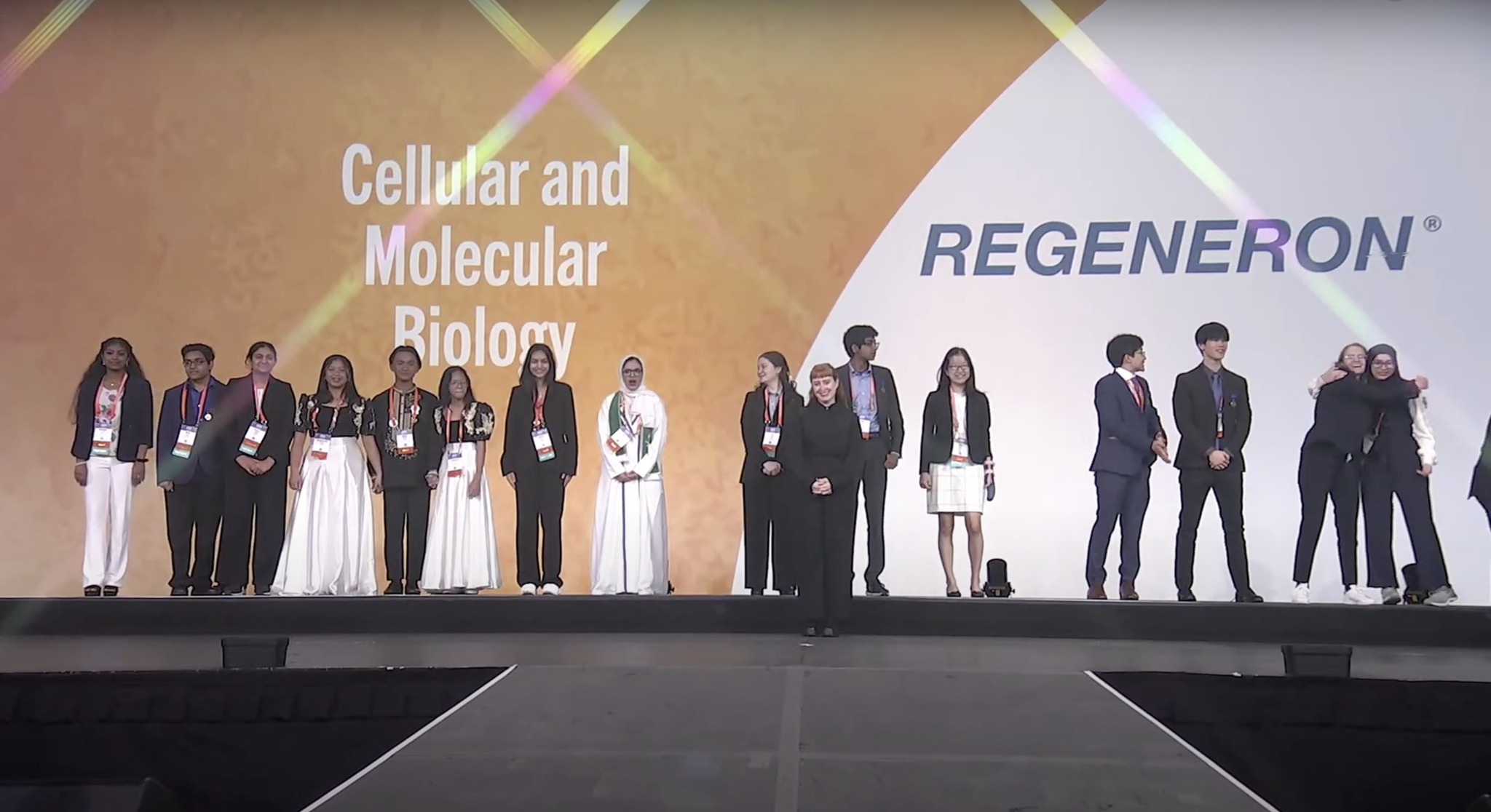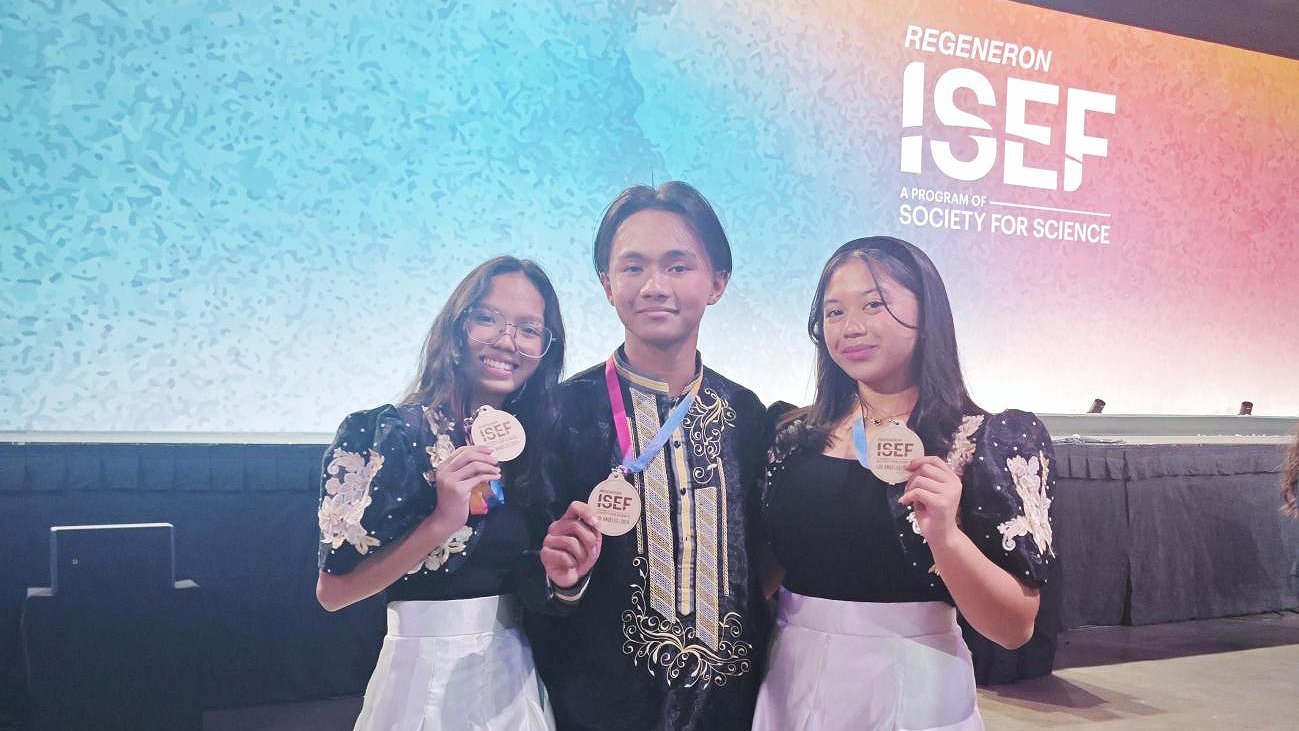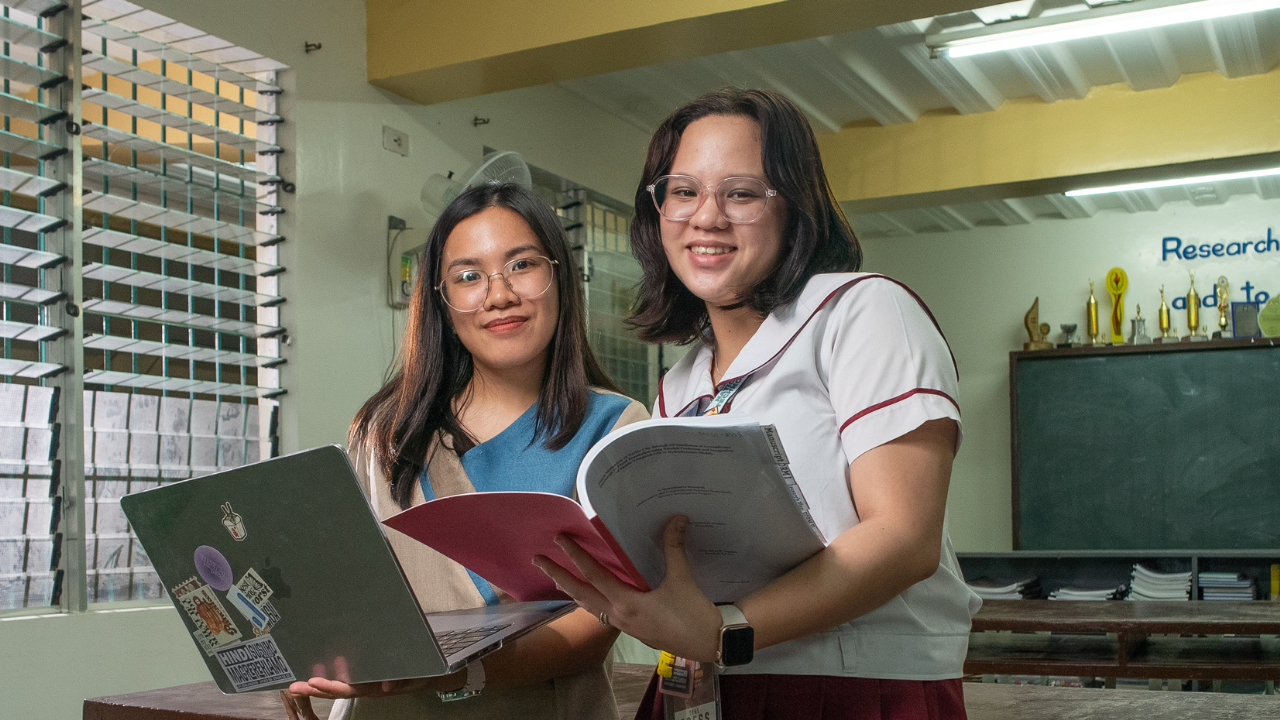In their research titled “In Vitro and In Silico Evaluation of Embryogenesis Inhibition Activity of Ethanolic Extracts of Chico (Manilkara zapota) Bark Against Gastrointestinal Strongyle Eggs,” high school students Michaela Ria Rentuza, Mikaella Rose Emereene Macabata, and Wesly Secuya explored the potential of chico tree bark extract in inhibiting the development of strongyle eggs, parasitic eggs commonly found in livestock.
“We decided to use the bark of the chico tree because first of all, it is an agricultural waste, so it does not have a use yet in the agricultural sector,” Rentuza explained. “And second of all, it is rich in tannins, which has been proven recently to have anthelmintic activity.”
The students collected livestock feces and mixed it with varying concentrations of chico tree bark extract. Results showed that the higher the chico tree bark extract concentration, the more effective it was in combating strongyle eggs. “Overall, our extract is comparable to other established anthelmintics in the market,” Secuya added.

Their research won Best Project in the Life Science Team Category at the 2024 National Science and Technology Fair of the Department of Education (DepEd). They also secured the fourth grand award in the Cellular and Molecular Biology Category at the Regeneron International Science and Engineering Fair (ISEF) in Los Angeles, California, competing against participants from 64 countries worldwide.
“The ultimate goal of our study and our ultimate hope is to continue our research into the in vivo phase, or to actually test the extract on the animals themselves, and to actually see if they do work in the stomach,” Macabata shared.
Their group is one of the 2024 recipients of the Gokongwei Brothers Foundation’s (GBF) Young Scientist Award, a recognition and scholarship grant awarded to exceptional student-researchers who develop innovations that positively impact their communities.
GBF remains committed to empowering young minds as they transform STEM knowledge into impactful solutions for challenges that Filipinos face.





.jpg)